Disclosure: This article contains affiliate links. We may earn a commission from purchases at no extra cost to you, which helps our travel content.
At 64, I've learned that the most profound journeys often happen in overlooked destinations. Pine Bluff, Arkansas—a small city cradled in the Arkansas Delta—is precisely such a place. When my college roommate from Pine Bluff invited me for a reunion weekend this spring, I expected a quiet visit. Instead, I discovered a vibrant tapestry of African American heritage that resonated deeply with my own mixed heritage. From the haunting melodies of Delta blues echoing through historic venues to museums chronicling the resilience of a people, Pine Bluff offers students of history and culture an immersive education that no textbook can provide. As someone who has traveled to healing destinations worldwide, I found unexpected wellness for the soul in this humble Arkansas town where the past speaks clearly to those willing to listen.
The Arkansas Delta Heritage: Understanding Pine Bluff's Context
Pine Bluff sits at the heart of the Arkansas Delta, a region shaped by the mighty Arkansas River and defined by its agricultural heritage. Before diving into the city's cultural offerings, it's essential to understand how geography and history intertwine here.
The Delta's fertile soil, which once drove the plantation economy, created the conditions for both tremendous suffering and remarkable cultural resilience among African Americans. Pine Bluff emerged as an important center for Black culture, education, and commerce in the post-Civil War era—a history I found remarkably preserved throughout the city.
As I drove into town from Little Rock (about 45 minutes north), the landscape shifted from rolling hills to the flatter terrain characteristic of the Delta. The air carried a certain heaviness that wasn't just humidity—it was the weight of history. My finance background has taught me to analyze patterns, and here I could see how economic forces shaped cultural development across generations.
Before your visit, I recommend reading up on Arkansas Delta history with the excellent Arkansas Delta, which provides crucial context for understanding the region's complex heritage. This background knowledge transformed my experience from mere tourism to meaningful cultural connection.
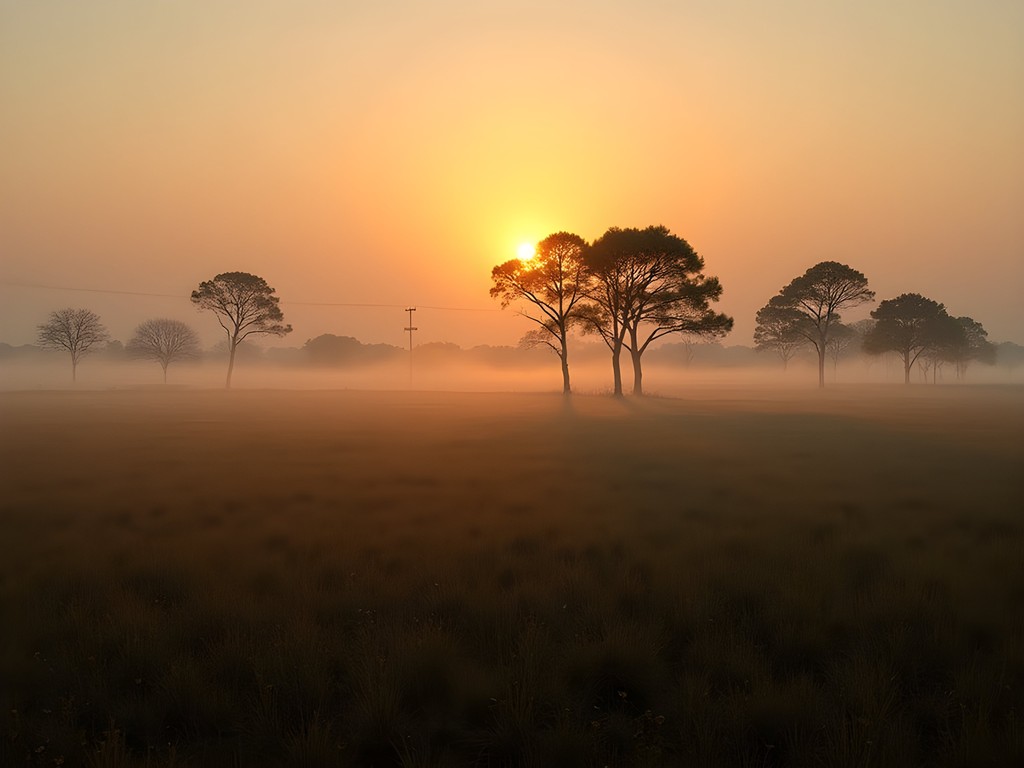
💡 Pro Tips
- Visit during weekdays when museums are less crowded and staff have more time for questions
- The flat terrain makes Pine Bluff very walkable, but bring comfortable shoes as sidewalks can be uneven in historic areas
- Many historical sites offer student discounts—always carry your student ID
The University Museum & Cultural Center: A Hidden Educational Gem
The University Museum and Cultural Center at the University of Arkansas at Pine Bluff (UAPB) proved to be the intellectual anchor of my heritage exploration. Housed in Childress Hall—originally built in 1947 as the university's dining hall—this museum chronicles the remarkable story of one of the nation's oldest historically Black colleges.
What struck me immediately was how the museum balances academic rigor with deeply personal narratives. Glass cases display photographs and artifacts from the institution's founding in 1873 as Branch Normal College, through its evolution into Arkansas AM&N College, and finally to UAPB. The docent, a retired professor with four decades of experience at the university, brought these exhibits to life with stories that never made it into official histories.
As someone who spent decades in finance before discovering my passion for cultural exploration, I appreciated how the museum contextualized education within economic realities. Exhibits showed how graduates became entrepreneurs, educators, and community leaders who built Pine Bluff's Black middle class despite systemic barriers.
For students of African American history, sociology, or education, this museum offers primary source material that deserves hours of exploration. I recommend bringing a pocket notebook to jot down references and questions for further research. The museum's archives contain additional materials available to serious researchers by appointment.
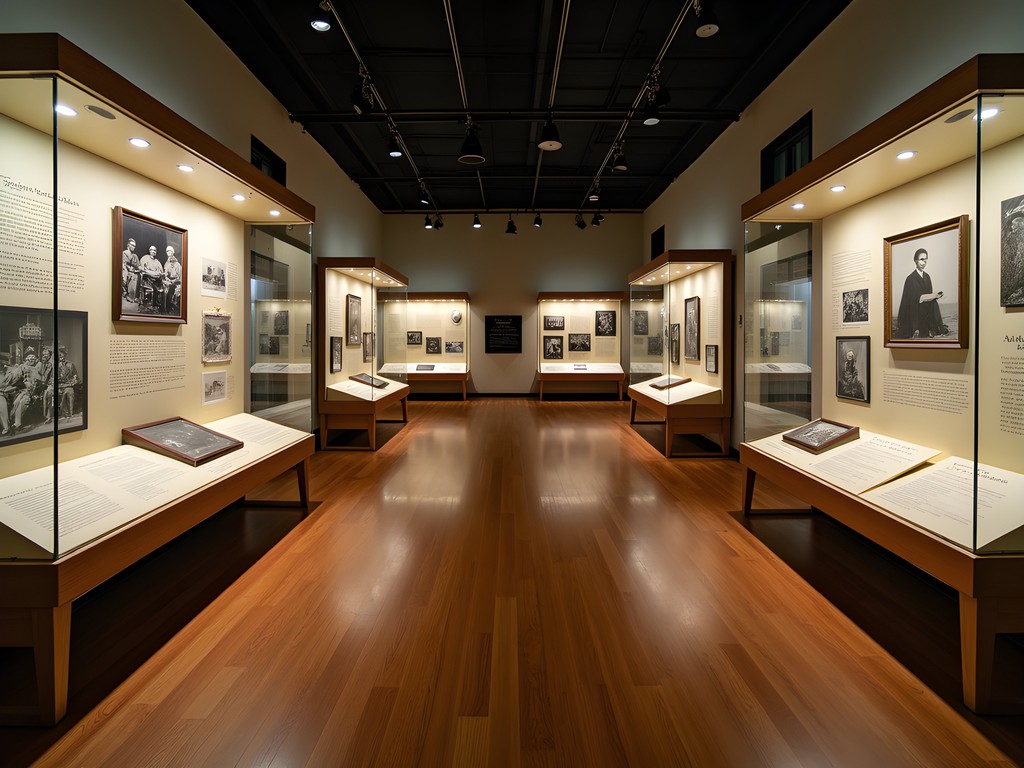
💡 Pro Tips
- Call ahead to arrange a guided tour with one of the knowledgeable docents
- The museum is free but donations help support their preservation efforts
- Allow at least 2 hours to properly explore the exhibits
Delta Rhythms: Experiencing Pine Bluff's Musical Heritage
The Arkansas Delta's musical contributions to American culture cannot be overstated, and Pine Bluff offers several venues where this living heritage continues to thrive. Unlike the more commercialized blues scenes in Memphis or New Orleans, Pine Bluff's musical offerings feel authentically connected to community life.
My most memorable evening was spent at RJ's Grill & Bar, an unassuming venue where local musicians gather for weekly jam sessions. The median age of performers was probably close to mine, with many having played these songs for decades. What they lacked in recording contracts, they more than made up for in soul and technical mastery. A 78-year-old guitarist played with hands gnarled by arthritis but produced sounds so sweet they brought tears to my eyes.
The Delta Sounds Museum, though small, provides excellent context for understanding how geographic isolation and economic hardship fostered musical innovation. Interactive exhibits allow visitors to trace how work songs evolved into blues, gospel, and eventually rock and roll. The museum's collection of vintage instruments, including handmade guitars and harmonicas, speaks to the ingenuity born of necessity.
For students of musicology, ethnomusicology, or American cultural studies, Pine Bluff offers an unfiltered glimpse into how music functions as both historical documentation and living tradition. I recommend bringing a portable audio recorder if you're serious about capturing these sounds—many musicians are happy to be recorded if you ask permission and explain your educational interest.
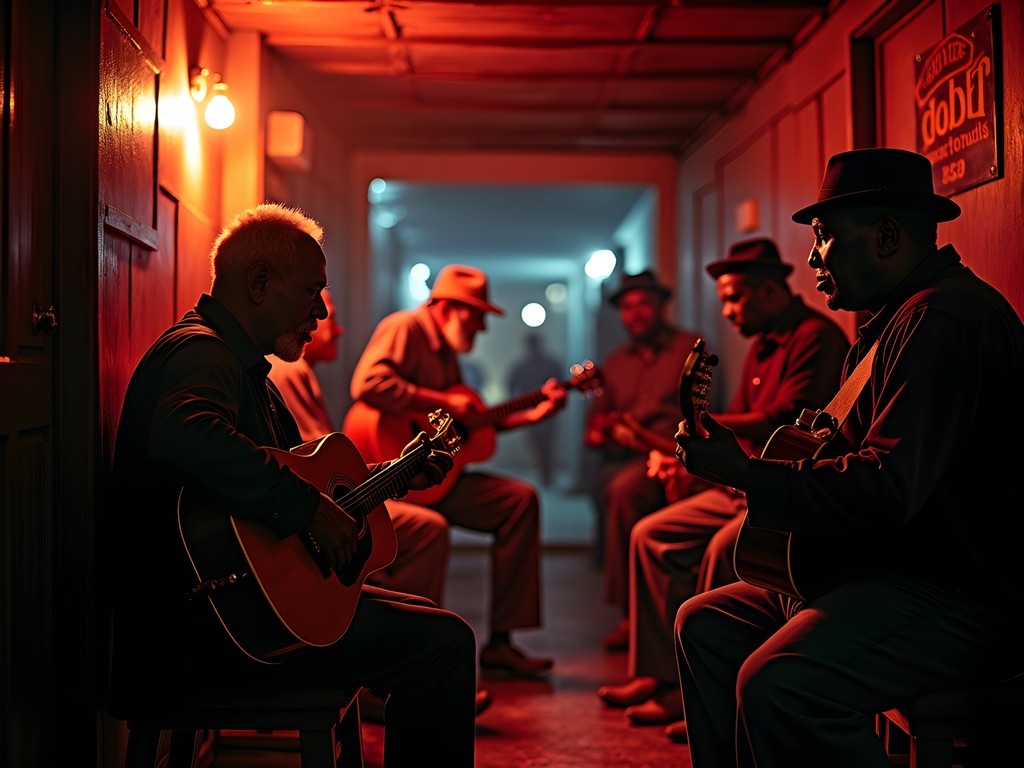
💡 Pro Tips
- Check local event listings for live music performances, which often happen on Thursday through Saturday nights
- Respect the spaces—these are community venues, not tourist attractions
- Bring cash for cover charges and to tip musicians
Pine Bluff's Civil Rights Journey at the History Museum
The Pine Bluff/Jefferson County Historical Museum houses a collection that punches far above its weight for a small-city institution. Located in the historic Union Station building, the museum chronicles the region's development with particular attention to African American experiences from enslavement through the Civil Rights era.
What distinguishes this museum is its unflinching honesty. Unlike some Southern historical institutions that gloss over painful chapters, Pine Bluff's museum addresses difficult topics directly. Exhibits document local lynchings, segregation ordinances, and economic discrimination alongside stories of resistance, achievement, and community building.
I was particularly moved by the exhibit on local civil rights activists who organized boycotts of downtown businesses in the 1960s. Having participated in protests during my college years in San Francisco, I recognized the courage required to stand against entrenched power structures. The museum displays original protest signs, court documents, and oral histories from participants—many of whom still live in Pine Bluff.
For students of history, law, sociology, or political science, these primary sources offer invaluable insights into how national movements manifested in smaller communities. The museum maintains an excellent research library where serious students can access additional materials with advance notice.
I spent hours taking detailed notes and photographs (where permitted) of documents that aren't digitized or widely available elsewhere. My travel journal quickly filled with observations that later became the foundation for meaningful conversations with local residents about how this history shapes Pine Bluff today.
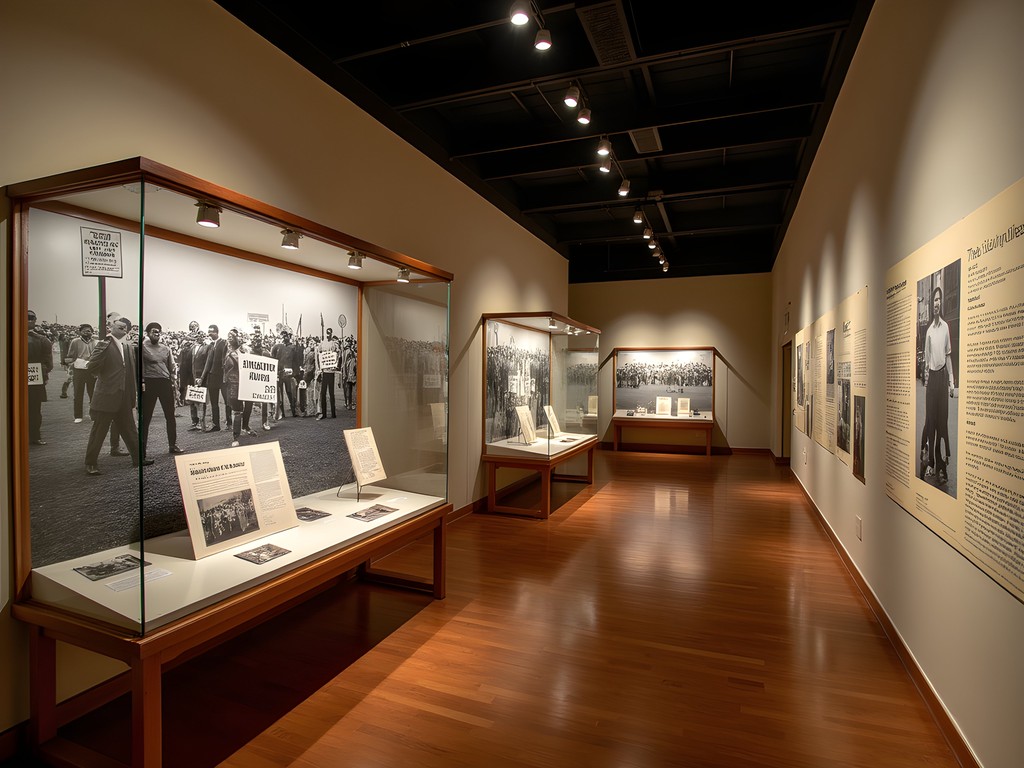
💡 Pro Tips
- The museum's hours can be limited—check their schedule and call ahead
- Ask about their oral history collection, which may be accessible to students doing research
- Some exhibits contain disturbing historical content—be prepared for emotional responses
Culinary Heritage: Tasting History in Pine Bluff
In my travels studying Ayurvedic traditions across India and Southeast Asia, I've learned that food is never just sustenance—it's living cultural heritage. Pine Bluff's African American culinary traditions tell stories of resourcefulness, creativity, and community that span generations.
Mr. Hamburger, a Pine Bluff institution since 1954, offers more than just its famous burgers. The walls display photographs documenting the restaurant's role as a meeting place during civil rights organizing. The elderly owner shared stories of how his father maintained the establishment as a safe haven for Black customers when most businesses remained segregated.
For a deeper dive into traditional Delta cooking, Granny's Kitchen serves dishes that connect directly to the region's agricultural history. Their greens, slow-cooked with smoked turkey instead of the traditional pork, carry flavors developed by enslaved cooks who transformed limited ingredients into cuisine worthy of celebration. The restaurant's owner, a third-generation cook, explained how recipes were preserved through oral tradition when literacy was denied to her ancestors.
Students of food studies, anthropology, or cultural history will find these establishments provide edible primary sources that illuminate broader historical patterns. I recommend visiting during off-peak hours when proprietors have time for conversation—their knowledge constitutes an oral history archive that no academic institution has fully documented.
I found myself taking notes on ingredient sourcing, preparation techniques, and family histories that revealed how foodways evolved in response to changing economic and social conditions. My understanding of Pine Bluff's heritage became literally more flavorful with each meal.
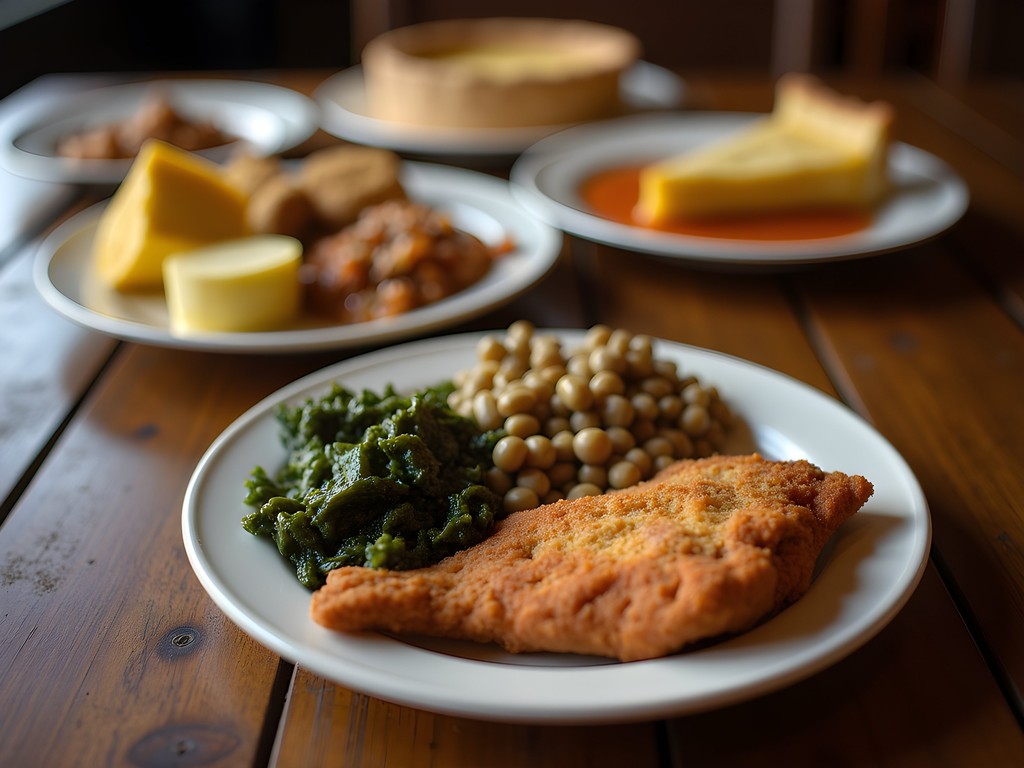
💡 Pro Tips
- Many local restaurants close on Mondays—plan accordingly
- Ask respectful questions about food traditions—most proprietors are proud to share their knowledge
- Budget-friendly prices make it possible to sample widely without overspending
Final Thoughts
As my weekend in Pine Bluff drew to a close, I found myself reflecting on how this modest Delta town had expanded my understanding of African American heritage far beyond what I expected. For students seeking meaningful cultural experiences on limited budgets, Pine Bluff offers an authenticity that more popular destinations often lack. The city's museums, music venues, and culinary establishments provide direct connections to living history that textbooks simply cannot convey. While Pine Bluff faces economic challenges common to many small American cities, the preservation of its cultural heritage represents a form of wealth that deserves recognition and respect. I encourage you to approach this journey with open ears and hearts—listen to the stories, ask thoughtful questions, and allow yourself to be changed by what you learn. The wisdom I've gained through Ayurvedic practices reminds me that true wellness includes understanding our connections to history and community. Pine Bluff offers precisely this kind of soul-nourishing education.
✨ Key Takeaways
- Pine Bluff's African American heritage sites offer students unfiltered access to primary historical sources
- Local museums and cultural centers provide context that connects national movements to local communities
- Musical traditions continue as living heritage rather than commercial performances
- Culinary establishments serve as informal archives of foodways and community history
📋 Practical Information
Best Time to Visit
Spring (March-May) when weather is mild and university events are happening
Budget Estimate
$150-250 for a weekend (accommodation, food, and activities)
Recommended Duration
2-3 days
Difficulty Level
Moderate (Some Sites Require Advance Planning)


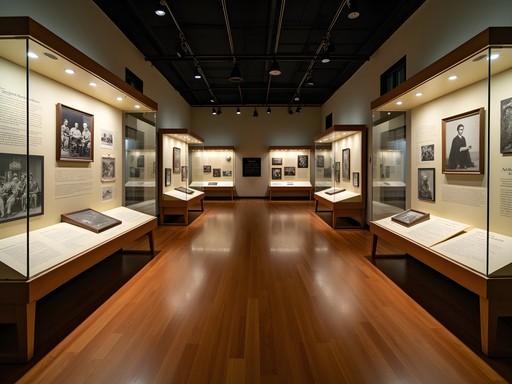
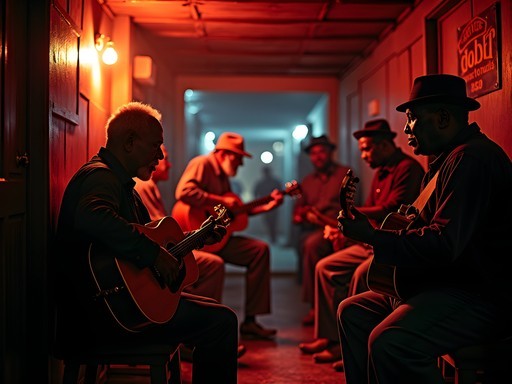
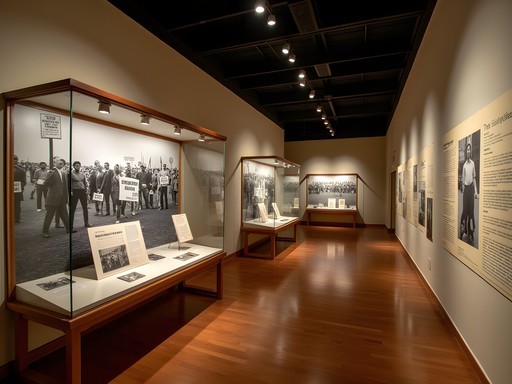
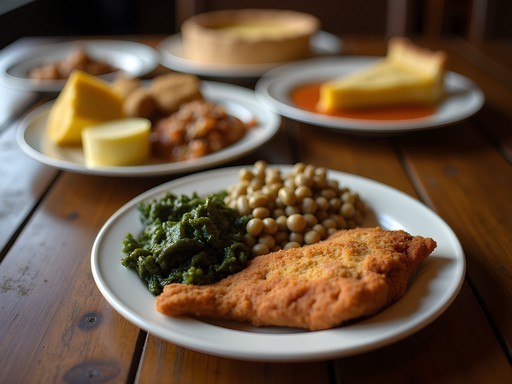


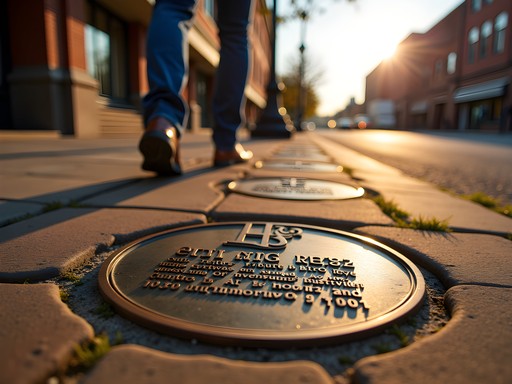
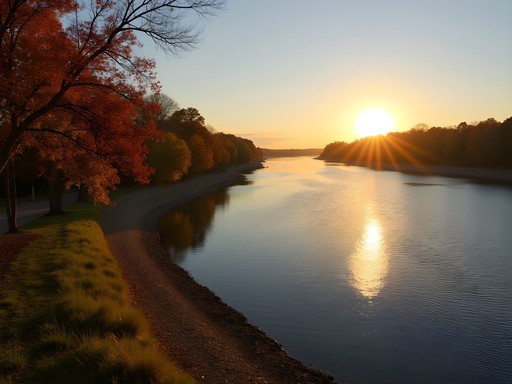

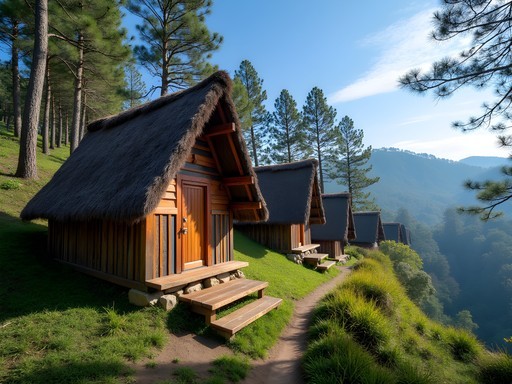
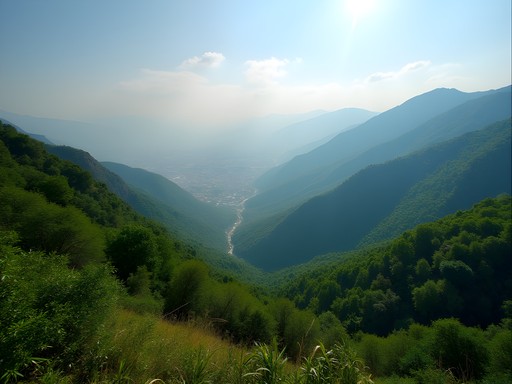



Comments
vacationclimber
How many days would you recommend for Pine Bluff? And is it easy to get around without a car?
summerblogger
Love this. More people need to explore Arkansas!
Marco Flores
Willow, this resonates so much with me. Last year I explored some overlooked towns in the Mississippi Delta and was blown away by the depth of history there. These smaller cities hold such powerful stories that often get overshadowed by bigger destinations. The way you describe the University Museum makes me want to visit immediately. I'm planning a road trip through Arkansas this fall—Pine Bluff is definitely going on the itinerary now. Did you find the locals welcoming to visitors interested in learning about the heritage?
Willow Turner
Marco, absolutely! Everyone I met was so generous with their time and knowledge. The museum staff especially were wonderful guides.
backpackchamp
This is SO cool!! I've been getting really into blues history lately and had no idea about Pine Bluff. The Delta region has such an incredible story to tell. Adding this to my list for sure! Do you know if there are any live music venues still operating there? Would love to catch some authentic Delta blues while visiting.
Willow Turner
Yes! There are a couple of local spots that have live music on weekends. The cultural center can point you in the right direction when you visit.
oceanguide
Never heard of Pine Bluff before but this looks really interesting!
Nicole Russell
Willow, this post couldn't have come at a better time! I'm planning my Deep South heritage tour for this summer and just added Pine Bluff to my itinerary. I'm especially interested in the Delta Rhythms aspect you mentioned. Did you find the blues scene accessible for solo travelers? I'm a bit nervous about navigating some of these smaller towns alone but really want those authentic experiences. Also, was there enough to fill a full weekend or would you recommend combining it with Little Rock? Your perspectives as someone with more life experience are so valuable!
wanderlusttime
Nicole, I did Pine Bluff as a day trip from Little Rock and it worked perfectly. It's only about 45 minutes away!
coffeebackpacker
Any good places to eat while visiting the museums? Going there next month!
Nicole Russell
Not the author but I was there in January! You HAVE to try Simmons Bank Field Café downtown. Their catfish is amazing and they have live Delta blues on Friday nights. Also, if you're into history books, I picked up Delta history book at the museum shop which really enhanced my visit to the historical sites.
coffeebackpacker
Thanks Nicole! Adding that café to my list. Love anywhere with live music!
wanderlusttime
Willow, thank you for shining a light on Pine Bluff! I visited last summer and was blown away by the University Museum. The exhibits on African American achievements in Arkansas were so well curated. Did you get a chance to visit during one of their live music events? The elderly gentleman who played blues guitar in the corner of the cultural center literally brought tears to my eyes. I feel like these smaller Delta towns hold so much more authentic history than the bigger tourist destinations.
coffeebackpacker
Was the museum easy to find? Planning a road trip through Arkansas this summer!
wanderlusttime
Super easy! It's right on the UAPB campus. Just follow signs for the university and you'll see it. They have limited hours though, so check before you go.
JazzTraveler
Love that shot of the old blues club! The lighting really captures the mood.
SouthernRoots
As someone who grew up in the Arkansas Delta, thank you for highlighting Pine Bluff's significance! So many travelers miss these smaller cities that hold such important pieces of American history. The University Museum was where I first learned about my own heritage as a child. If anyone's planning a visit, try to time it for the King Cotton Blues Festival if possible - usually in October. It's small but so authentic and the food vendors alone are worth the trip!
backpackwalker
Ooh, a blues festival sounds amazing! Is October usually good weather-wise?
SouthernRoots
Perfect weather! Mid-70s during the day, cool evenings. Bring a light jacket and you'll be comfortable all day.
Venture X
Premium card with 2X miles, $300 travel credit, Priority Pass